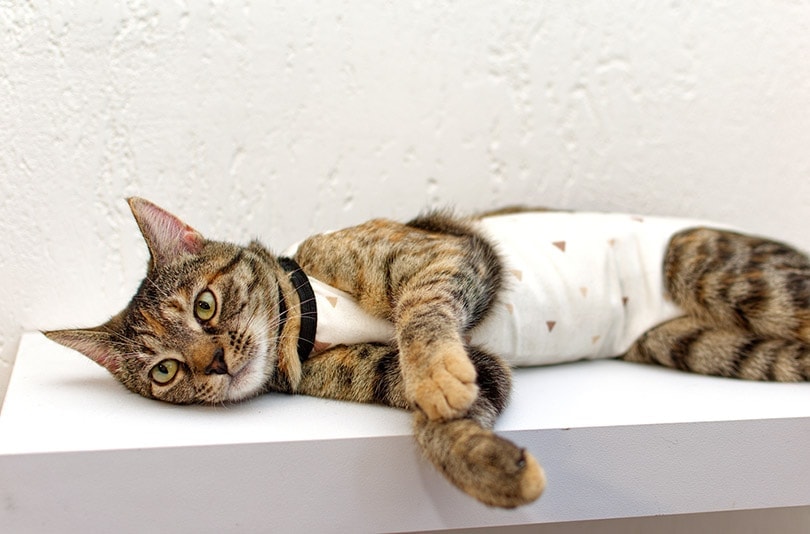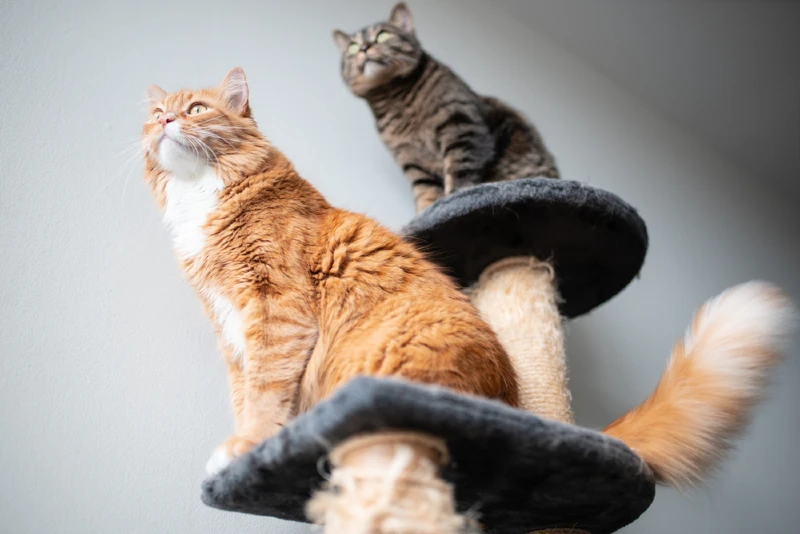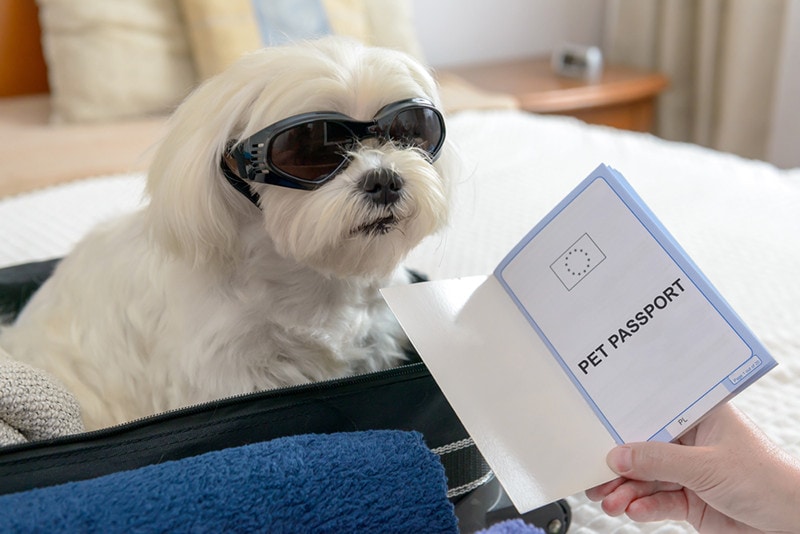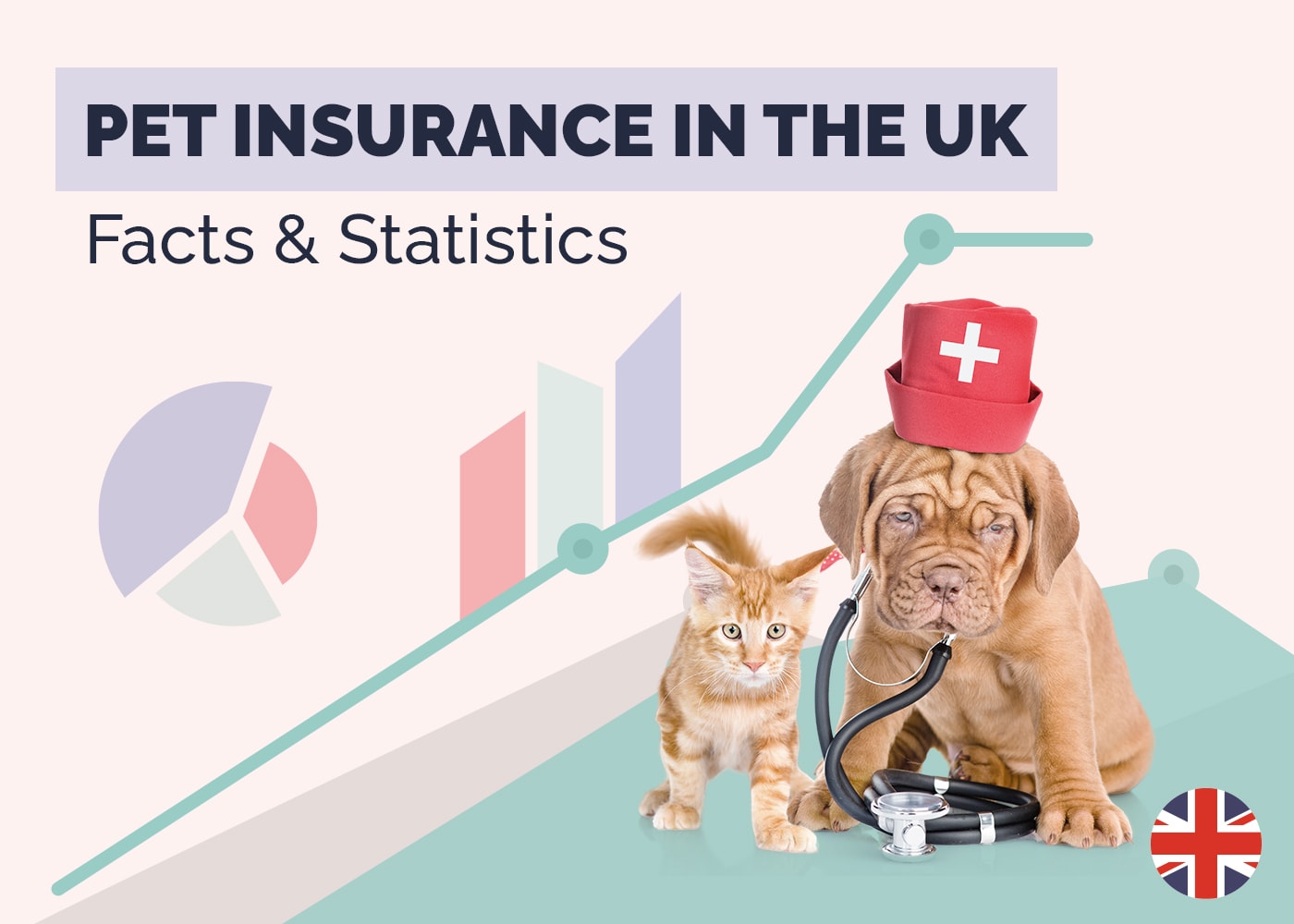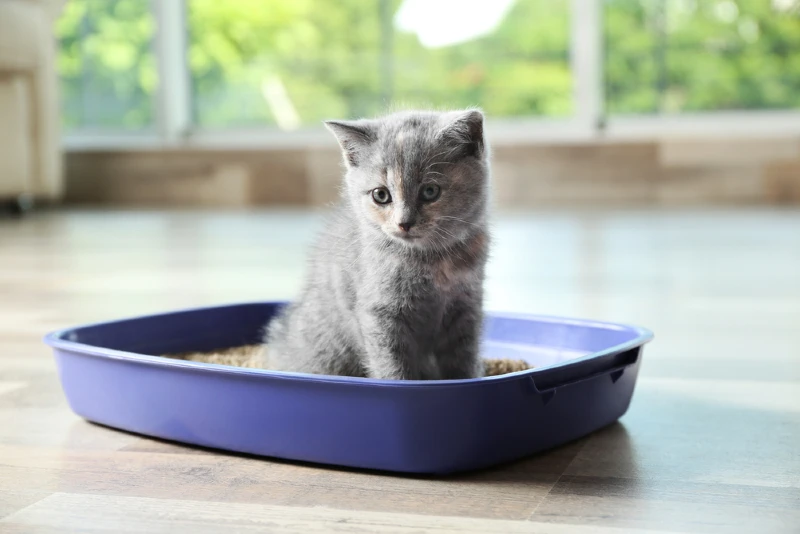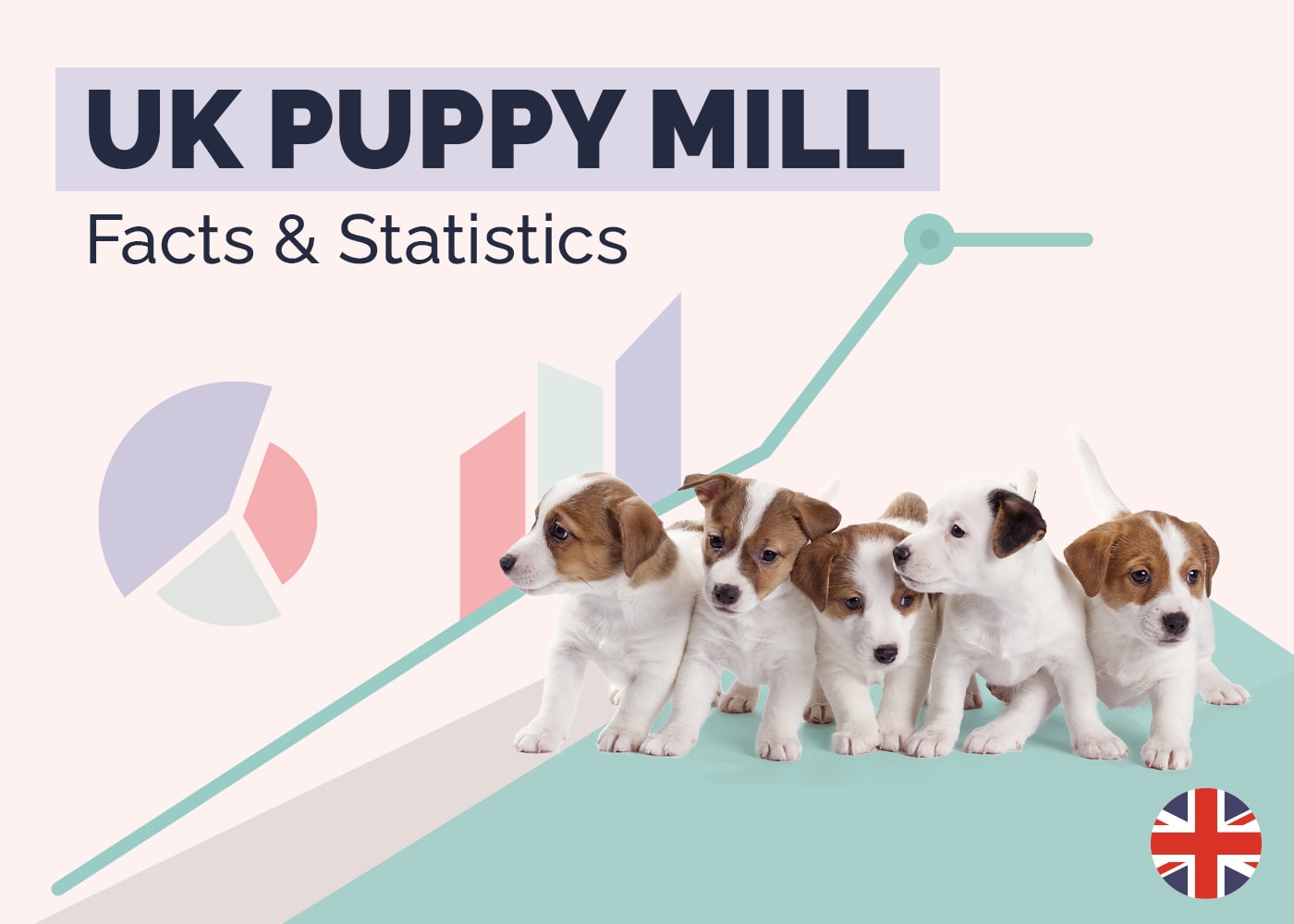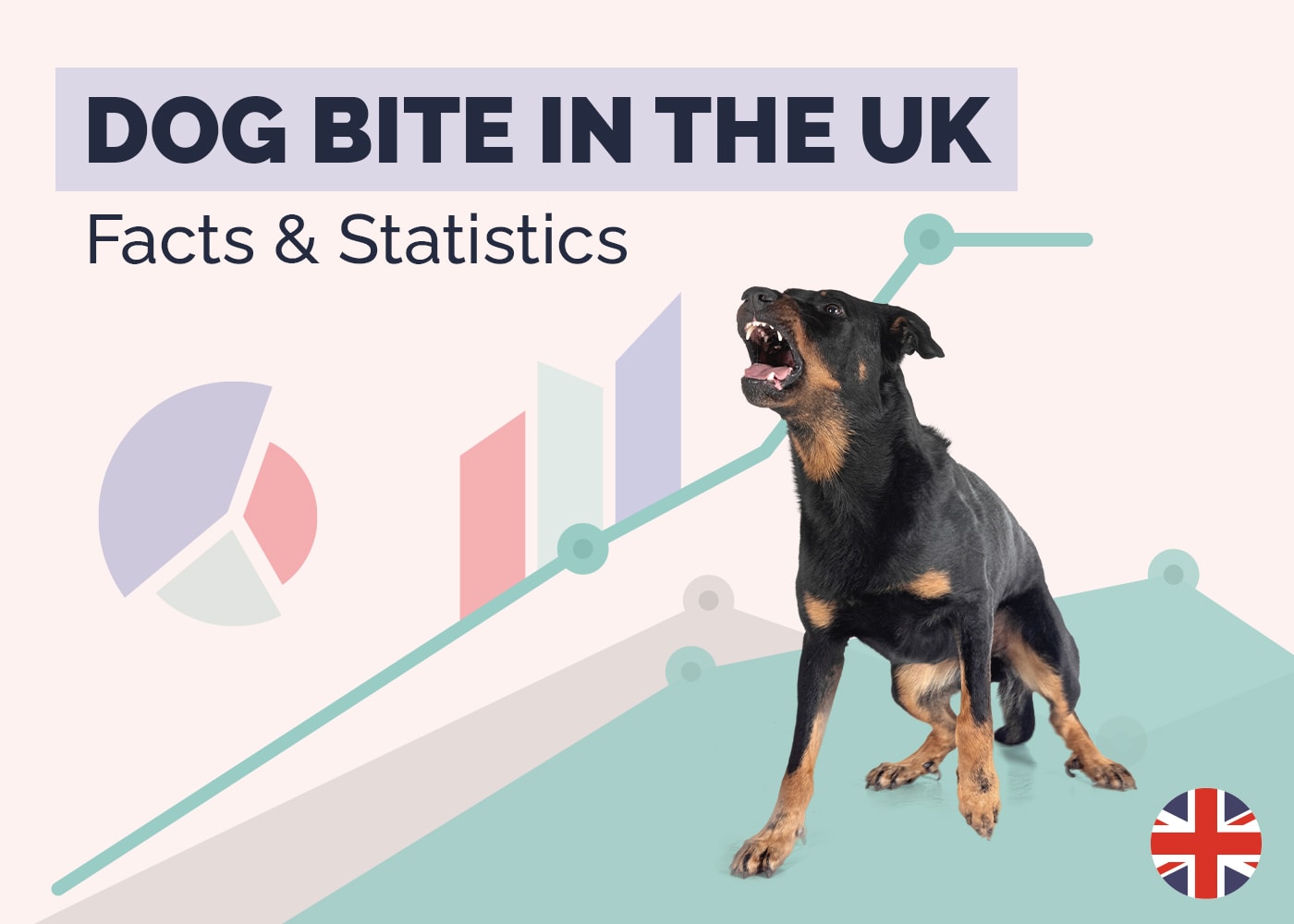What’s the Cost of Cat & Kitten Vaccinations in the UK? (Updated in 2024)
By Cheryl Regan
Updated on
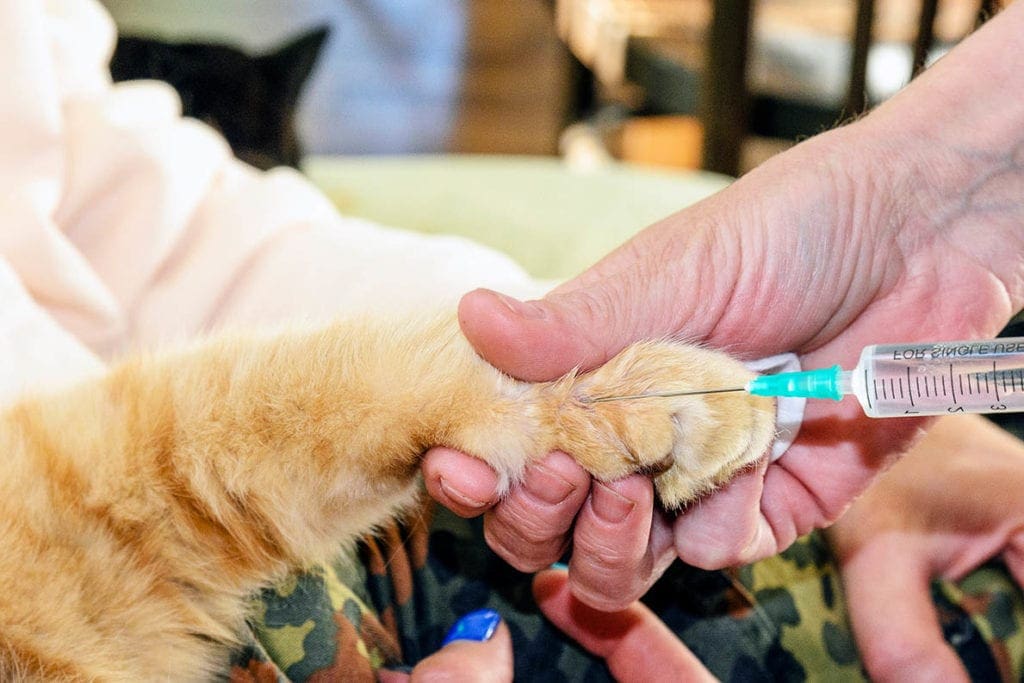
Veterinary charity, PDSA, estimates that 24% of the UK’s adult population own a cat. If you’ve recently joined this number—welcome to the club! Being a cat parent is extremely rewarding, but it is also a responsibility that all of us should take seriously.
Your new cat will rely on you to keep them safe and healthy in ways that they can’t do by themselves, and though it’s impossible to prevent some injuries and sicknesses, there are vaccinations that will protect your cat against common feline infections.
In this article, I’ll guide you through all the available cat and kitten vaccinations, which sicknesses they protect from, and their average costs. Luckily, kitten and cat vaccinations are affordable for most people. Keep reading to learn more!
How Much Do Cat and Kitten Vaccinations Cost?
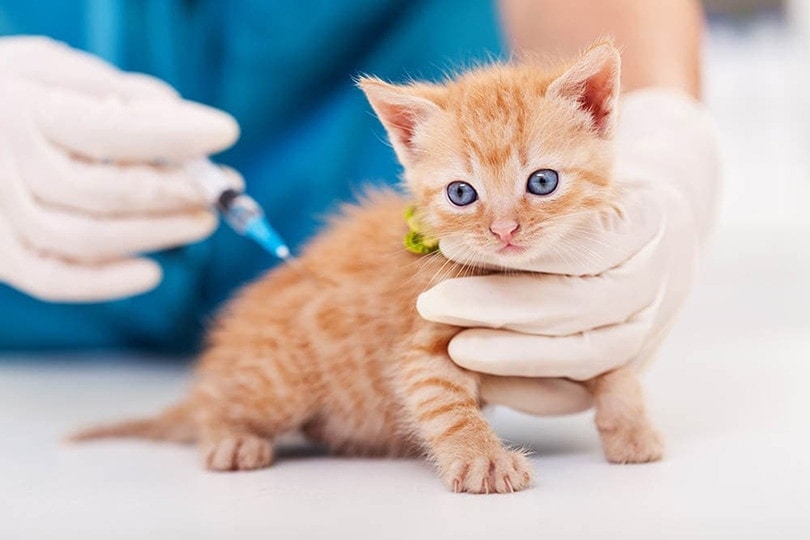
Prices vary depending on a number of factors. For a start, each vet practice will have its own different pricing. According to very thorough research conducted by NimbleFins, some practices charge double the amount of others, so I wholeheartedly recommend that you shop around before booking an appointment.
Another factor that can affect vaccination costs is whether your cat stays indoors or is an outdoor cat. Outdoor cats—like mine—are going to need more vaccinations, as they are more likely to come into contact with other cats that carry infections.
Additionally, vaccinations that protect against Feline Leukemia Virus (FeLV) cost a little more, though these are particularly recommended for outdoor cats.
Let’s take a closer look at NimbleFins’ findings when it came to cat and kitten vaccination costs.
Cost of 1st and 2nd Round Kitten Vaccinations
| Price Range | Including FeLV | Excluding FeLV |
| Lowest Prices | ~£60 | ~£50 |
| Average Prices | ~£75 | ~£55 |
| Highest Prices | ~£91 | ~£60 |
Cost of Annual Booster Vaccinations
| Price Range | Including FeLV | Excluding FeLV |
| Lowest Prices | ~£45 | ~£45 |
| Average Prices | ~£53 | ~£50 |
| Highest Prices | ~£63 | ~£54 |
Additional Costs
Not all cats in the UK need to have a rabies vaccine, but if you’re taking your cat out of the country, they’ll need a rabies vaccine before you’re allowed to bring them back into the country. A rabies vaccine for your cat will cost around £60.
Why Are Cat Vaccinations Important?
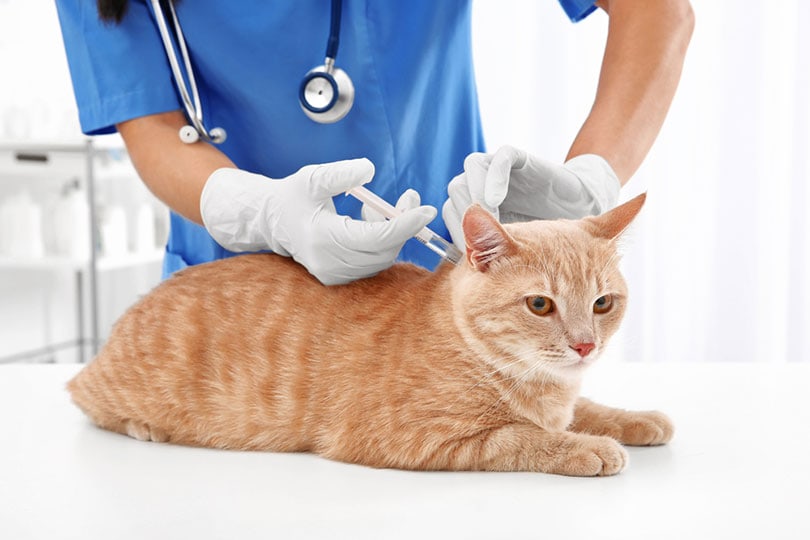
According to the Royal Veterinary College, vaccinations can prevent your cat from catching viral infections that trigger chronic and lifetime diseases. These diseases can cause a large array of painful symptoms, including eye and mouth ulcerations, reduced immunity, inflammation of the respiratory system, and cancer.
Spending an initial cost on primary vaccinations, and then a smaller amount annually for a booster can end up saving you hundreds of pounds by preventing your cat from getting these diseases in the first place. But it’s not just the monetary savings you should be thinking about—watching your pet suffer an illness is a heartbreaking experience that no loving pet parent wants to go through.
What do Vaccines Protect Against?
There are vaccinations available to protect against the following diseases:
Feline Panleukopenia/Infectious Enteritis (Feline Parvovirus, FPV)
This disease attacks the cat’s guts, immune system, and in some cases its heart. Symptoms are significantly worse in kittens than they are in fully grown healthy cats, however, if a cat is pregnant while infected, the kittens may be born with brain damage.
Feline Rhinotracheitis (Feline Herpesvirus, FHV)
FHV is a common feline respiratory virus that’s similar to the human flu. Symptoms include sneezing, coughing, eye discharge, inflammation and ulcerations of the cornea (the surface of the eyes), and conjunctivitis.
Unfortunately, cats that are infected will carry this virus throughout their lifetimes. Instead of a cure, treatment comprises symptomatic treatment and supportive care.
Feline Calicivirus (FCV)
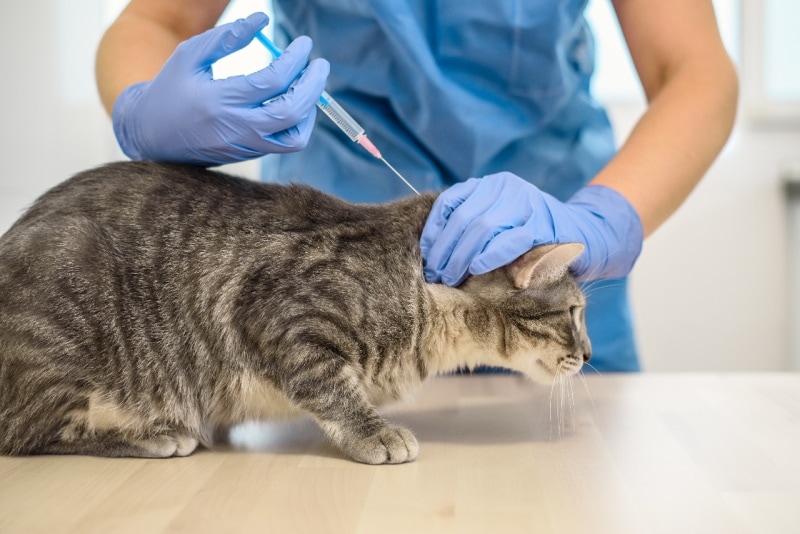
In mild cases, the symptoms will eventually wear away. Severe cases are more likely to affect kittens and older cats, however, a mutated strain of FCV known as FCV-VSD can spontaneously occur, causing severe and sometimes fatal symptoms, such as head swelling and liver damage.
FCV-VSD is fatal in 60% of cats that are infected.
Feline Leukemia Virus (FeLV)
FeLV is a virus that attacks the immune system. It causes cancers like lymphoma and leukemia, and it increases the risk of other infections and diseases. Though some—usually vaccinated cats—survive FeLV and recover, most cats with FeLV become very sick.
According to PDSA, most cats with FeLV either die or need to be put to sleep within 3 years of being diagnosed. Kittens that are born with FeLV often die soon after birth.
Chlamydophila Felis
This vaccination is usually offered to cats who have been infected previously. The bacteria cause eye infections, with symptoms including ocular discharge, and inflammation covering the inside of the eyelids and the cornea.
Symptoms can last for many months, and the infection can easily spread to other cats.
Bordetella Bronchiseptica
Bordetella bronchiseptica is usually spread through environments where a large number of cats are kept together, for example in rescue centers, catteries, or breeding households.
The bacterium causes an upper respiratory disease. Symptoms include coughs, sneezing, and nasal and ocular discharge. Severe cases may result in life-threatening pneumonia—kittens and older cats are more at risk.
Feline Rabies
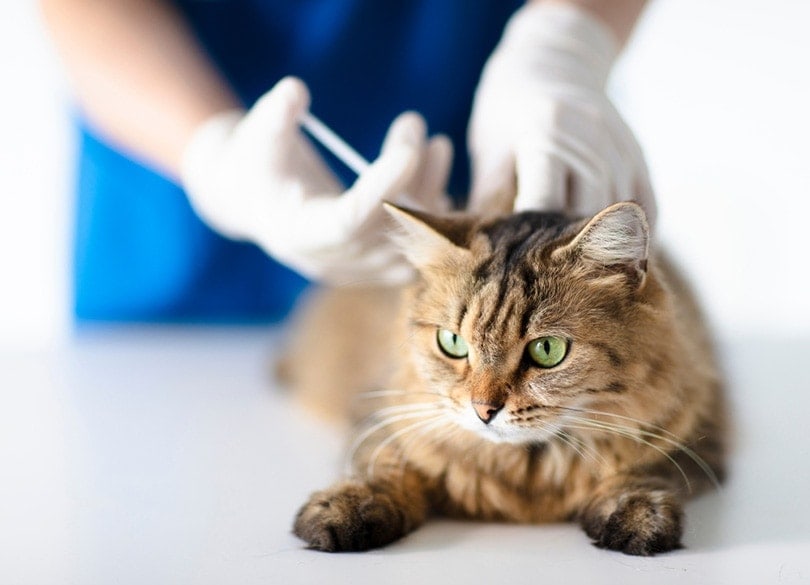
Rabies is caused by a virus that is spread through saliva—usually bites—and causes damage to the brain and nerves. It is a deadly disease that not only can be spread to other animals, but also to humans.
The UK is currently free of rabies, however, this means that animals—including cats—that enter the country from abroad must be vaccinated against the virus. If you are planning to travel abroad with your cat, make sure you ask your vet about a rabies vaccine, and follow all pet travel rules set out by the government.
Are Vaccinations Covered by Pet Insurance?
Regular preventative care, such as vaccinations, flea and worming treatment, and spaying/neutering are not usually covered by insurance.
However, your insurance premium may be affected by whether your cat is vaccinated or not. Some insurance policies are only valid if your cat is up-to-date on their vaccinations. Additionally, some pet insurers offer discounts on regular preventative treatment if you sign up.
Conclusion
You can expect to pay around £50 annually for your cat’s booster vaccinations, though your kitten’s primary vaccines may cost around £75.
It may seem like a lot of money, but vaccinating your cat against harmful diseases can save you money and heartache in the future. If you feel you’re unable to afford the cost of vaccinations, reach out to charities, such as RSPCA, who may be able to help out.
See also:


